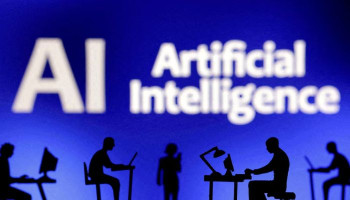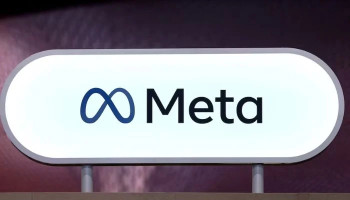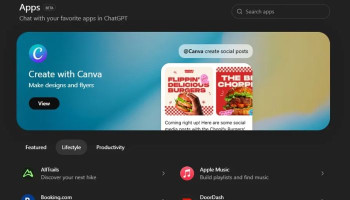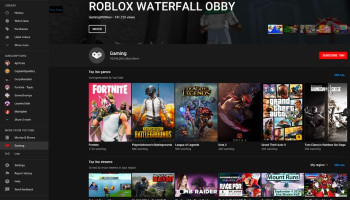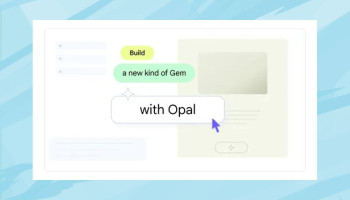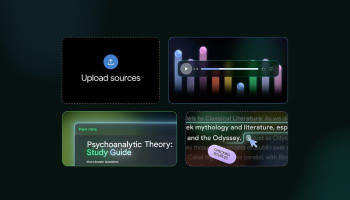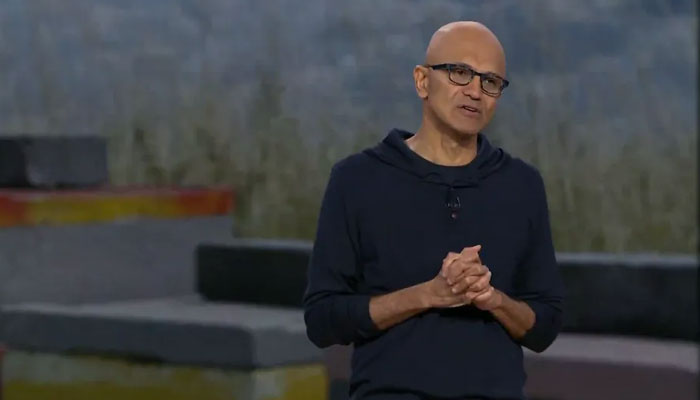
Microsoft Build 2024 is officially underway, with CEO Satya Nadella highlighting the company's past achievements and future focus on artificial intelligence (AI) tools and programmes. This focus on AI aligns with Microsoft's mission of bringing people together and making their lives easier.
Nadella acknowledged the limitations of Moore's Law in predicting computing advancements and emphasised the exciting potential of AI. He expressed gratitude to developers for their contributions and their use of AI to create impactful technologies.
A core aspect of Microsoft's AI strategy is the Copilot+ PC initiative, designed to make Windows the go-to platform for building AI applications. Developers will have access to a suite of Copilot Library tools, including Phi-Silica for on-device AI processing.
Additionally, PyTorch and Web Neural Network will run natively on Windows, providing developers with even more tools and enhanced performance through a processor's NPU.
Microsoft expands Azure
Microsoft is also expanding its Azure cloud infrastructure to over 60 regions, ensuring greater accessibility and promoting cloud service sustainability. This focus on infrastructure is crucial for developers to build applications that simplify our lives.
Partnerships are key in Microsoft's AI vision. The company is collaborating with Nvidia to leverage large language models (LLMs) like ChatGPT for native integration into devices. Additionally, Microsoft is utilising AMD's ND MI300X V5 hardware to further bolster its AI capabilities.
The presentation showcased the power of Azure AI, highlighting its use by over 50,000 organisations and revealing that ChatGPT-4o was trained on this platform. Demos showcased AI applications like in-game guidance for Minecraft and voice-activated product recommendations for camping trips. Notably, OpenAI's ChatGPT-4o will be available to developers as an AI agent.
Microsoft is also expanding its Phi-3 model with more parameters, allowing it to function in the cloud or locally on devices. Another interesting demo presented how AI can personalise learning through Khan Academy, potentially acting as a virtual tutor for students and a teaching assistant for instructors. The affordability of the Phi platform makes this solution accessible to schools.
Azure AI Studio is now available to all developers, empowering them to create AI-powered applications. Additionally, Microsoft announced advancements in real-time intelligence within Microsoft Fabric, further streamlining workflows for developers and organizations.
Microsoft Copilot connectors
The keynote heavily emphasised developer tools, a core strength for Microsoft. While some technical details might be over the heads of casual users, the excitement among developers in the audience speaks volumes about the potential of these advancements.
Neha Batra, VP of Engineering, kicked off the Copilot segment with a demonstration in Spanish! She showcased how GitHub Copilot understands coding questions asked in a different language and provides real-time answers. This highlighted the growing capabilities of Microsoft's AI companion.
Nadella then took the stage to emphasise how Copilot has benefited businesses since its launch. He introduced Microsoft Copilot connectors, which allow companies to seamlessly connect various applications and streamline workflows.
Team Copilot
The biggest announcement was Team Copilot, designed to work within Teams and other Microsoft programmes. Team Copilot acts as a virtual assistant, facilitating meetings, taking notes, managing chats, and even assisting with project management. Notably, developers have the flexibility to build Copilot agents from scratch or utilise pre-made templates. This allows for customisation based on specific business needs.
Security, a major concern with AI integration, was also addressed by Nadella. Following his presentation, a video showcased how AI-powered audio descriptions can aid people with disabilities. This highlighted the positive potential of AI applications.
Rajesh Jha, EVP of Experiences, continued the Copilot discussion. He revealed that over 150 Copilot agents have been created since the beginning of 2024, showcasing the rapid adoption of this technology. An integration with Microsoft 365 apps further expands Copilot's reach. Additionally, a standalone Copilot app is now available for everyday users.
Jha presented various use cases for Copilot, demonstrating how it can automatically summarise conversations and generate documents based on user input.
Copilot extensions
The focus then shifted towards customisable Copilot agents. Businesses and developers can create personalised AI assistants that "learn" from past data to provide users with the most up-to-date information.
Lumen, a company using Microsoft Copilot 365, showcased how Copilot streamlines product sales for their customers. This exemplifies Copilot's versatility across various industries.
Jeff Teper, President of Collaborated Apps & Platform, showcased Copilot extensions. He demonstrated the ease of creating custom Copilots that seamlessly transfer information between different programs. Wolters Kluwer provided another example of how their custom Copilot saves time during order creation.
Overall, the focus of the Copilot segment was on its enterprise applications. Teper concluded by announcing the launch of Copilot extensions and various Copilot functionalities within Microsoft 365 for enterprise users.





